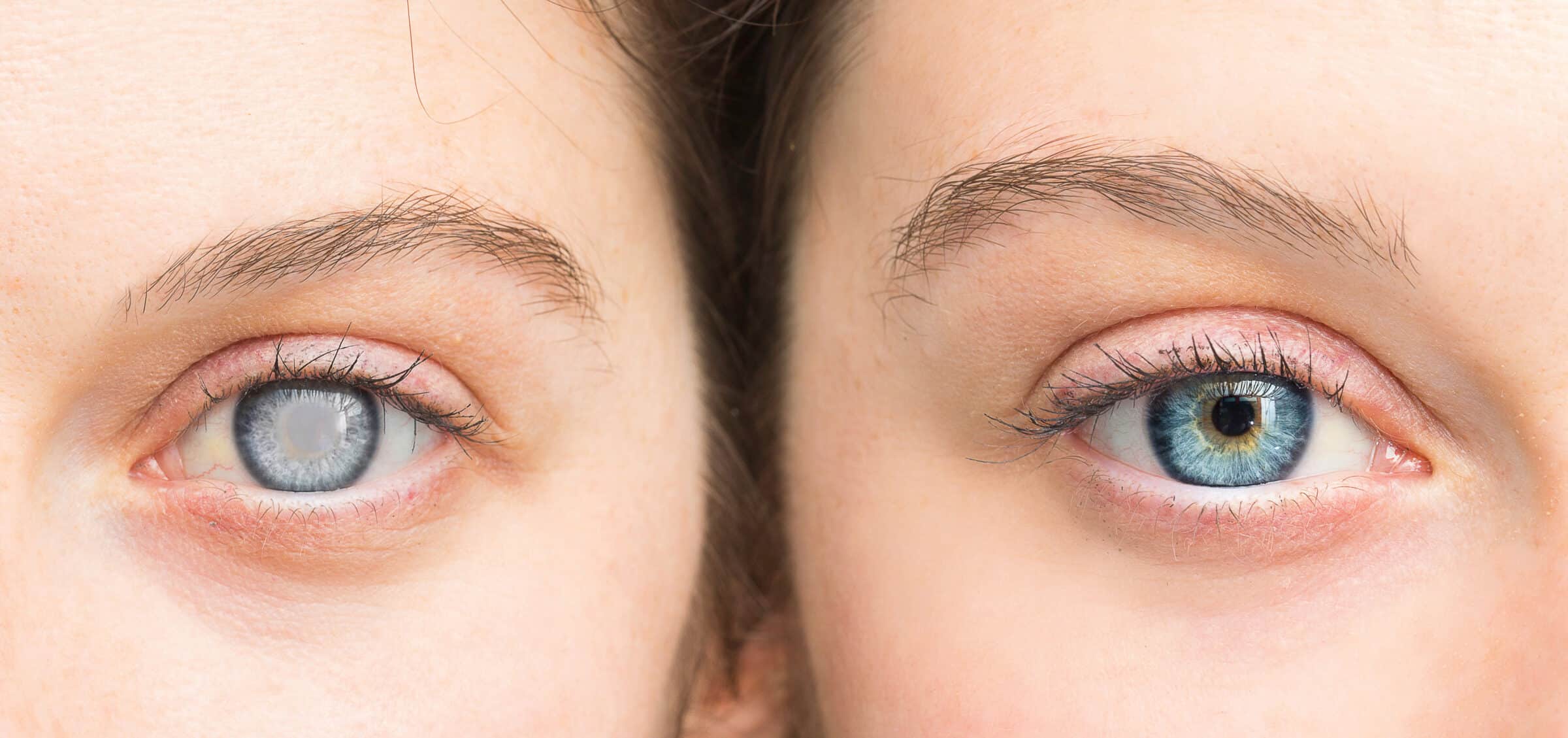Cataract Surgery usually goes smoothly and leads to improved vision with few lasting issues, however, there are some cataract surgery risks e.g. eye trouble or chronic medical conditions that you should consider before opting for this procedure.
Knowing what could potentially go wrong is beneficial; pay attention to any symptoms you may be having and get in touch with your doctor if anything appears off.
Can Cataract Surgery Be Redone?
Cataract surgery is usually successful and can have an incredibly positive impact on one’s life. Nevertheless, as with any type of surgery, there is always the possibility of undesirable outcomes.
Your surgeon will explain all the cataract surgery risks prior to the procedure, however, if it does not produce the desired results, additional treatments can be carried out for a positive end outcome after cataract surgery.
What Are the cataract surgery risks you should be aware of?
Any sort of surgery is accompanied by risk; however, cataract surgery has about a 98% successful rate. Despite the fact that the procedure usually goes smoothly, there is still potential for serious cataract surgery risks leading to pain, total vision loss, or even the removal of an eye.
Cataract surgery risks can include infection, detached retina, inflammation, swelling, retained pieces of the cataract, glaucoma, bleeding, worsening of certain eye conditions such as diabetic retinopathy, or failure to improve vision if other eye diseases are present such as macular degeneration. These issues might require additional treatment or surgery to be fixed.
Infection after cataract surgery
If germs enter your eye during surgery, it can lead to an infection which causes light sensitivity, pain, redness, and vision problems. If this occurs, contact your physician immediately.
Though they are uncommon, if an infection occurs post-cataract surgery, you’ll receive a shot of antibiotics in your eye and, in some cases, the vitreous may also be removed in order to keep the infection from growing.
Inflammation after cataract surgery
Mild swelling and redness after surgery are normal; in cases where the symptoms are more severe, eye drops or other medications will be used to treat them.
Retinal Detachment
The retina is located deep inside the eye and senses light, sending signals to the brain. Following surgery, there is a slight risk of retinal detachment due to the detached retina in the back of the eye.
It’s an emergency that could cause loss of vision. See your eye doctor right away if you:
- Have new floating spots in your vision
- See flashes of light
- Feel like a curtain has fallen over part of your eye
Lens Fragments
When your cataract surgeon removes the cloudy refractive lens from your eye, some of its pieces may remain in the eye, which isn’t a problem if they are too small. However, bigger ones can pose an issue.
You may need surgery to remove the vitreous and prevent swelling.
Fluid Buildup in the Retina
Sometimes after surgery, blood vessels in the retina leak. As fluid collects in your eye, it blurs your vision.
To cure the condition, your doctor will most likely give you eye drops, but it may take weeks or months for them to take effect. It usually resolves completely, but in more severe cases, a steroid injection or surgery behind the eye could be necessary.
Dislocated Intraocular Lens (IOL)
Dislocated Intraocular Lens (IOL) is a complication that can occur during cataract surgery. It occurs when the artificial lens implant is not in the right place in the eye, resulting in blurred or double vision.
In some cases, the IOL may need a manual reposition by your doctor. If this is not possible, then an additional surgical procedure may be necessary to correct the issue. In more severe cases, there is a need for a new IOL implant.
Secondary Cataract (Posterior Capsule Opacification)
During cataract surgery, the lens capsule that encases the eye’s lens is left intact, with only the front of the lens being removed.
This is when a secondary cataract might occur or what’s known as posterior capsule opacification (PCO). When this takes place, it can lead to your vision becoming hazy again. Generally, this will naturally occur after cataract surgery.
To rectify it, you need a procedure identified as YAG laser capsulotomy. During this process, your doctor makes use of a laser to carve out a hole in the rear part of the lens capsule, which helps in letting the light pass through and permits reading and doing activities with clarity.
This treatment is totally painless and it takes within five minutes. It happens to almost everyone who has undergone cataract eye surgery and it is an organic occurrence.
Swelling in the Cornea
When operated on, the cornea – a transparent layer located at the front of the eye – may swell and appear blurrier, impeding vision.
Usually, this issue gets better after a few days or weeks. Treatment may include using eye drops prescribed by a doctor.
Bleeding
Although not a common cataract surgery complication, when undergoing surgery, it’s possible for a blood vessel that supplies the retina to have unprovoked bleeding. Small amounts of blood are nothing to worry about, however, larger amounts can lead to vision loss.
Post-surgery, blood pooling between the cornea and iris can block your vision, but with enough bed rest and eye drops, you can help alleviate the problem. Ensure to keep your head raised while lying in bed.
Surgical intervention might be needed if the blood causes too much pressure or if it doesn’t drain properly
Floaters and Flashes of Light
Surgery can cause the back of the vitreous to separate from the retina, resulting in a person seeing moving web patterns, cloudy spots, and flashes of light.
The symptoms are similar to retinal detachment so it is important to get an evaluation from your doctor, even though the condition usually resolves on its own in a few months.
High Eye Pressure
Some people are left with ocular hypertension after surgery which causes increased pressure in the eye and can affect their vision. Treatment for this can involve using eye drops, shots, or pills prescribed by a doctor.
Pressure in your eye due to swelling, bleeding, or lens fragments that remain can result in glaucoma and the treatment for this depends on what’s causing it. If the damage is to your optic nerve, then it could require glaucoma surgery.
Light Sensitivity
Although this may be expected, if it persists for longer than a couple of days, seek medical help.
You may need to wear sunglasses for several months until it fades, but it could be indicative of other issues such as too much inflammation in your eye which would require the use of eye drops.
Droopy Eyelid
Drooping of the eyelid, also known as ptosis, is a common complication post-surgery.
The origin of this disorder is unknown, but it usually resolves without any medical intervention. If the symptoms persist longer than 6 months, surgery may be required.
Dysphotopsia
This causes you to see visual effects, and there are two types:
- Negative dysphotopsia, which gives you a curved shadow at the edge of your vision
- Positive dysphotopsia, which makes you see halos, starbursts, flashes, or streaks of light
Expert cataract surgeons are uncertain as to why this occurs, and it often disappears on its own. The negative form is more prone to be long-lasting. The standard treatment for this is observation and waiting to determine if it gets better. Eye drops and heavier frames for eyeglasses might also be an option to alleviate the shadow’s presence.
If the issue persists for months, your doctor might suggest surgical procedures, such as having a new lens or wearing two lenses on top of each other.
Is there a risk of cataracts recurring after surgery?
It’s incredibly vital to understand that the effects of cataract surgery are everlasting. Cataracts can never return after the removal of the natural lens. However, there is a widely known state referred to as ‘post-cataract’ that produces similar signs (haziness or clouding of sight). The medical name for this is Posterior Capsular Opacity.
CONTACT US TODAY
If you are looking for treatment options and want state-of-the-art laser eye surgery to cure your condition, cataract surgery Hawaii specialists at EyeSight Hawaii in Honolulu, HI, and Maui, HI have the experience and knowledge to help. Make an appointment online or call our office to schedule a consultation today!

